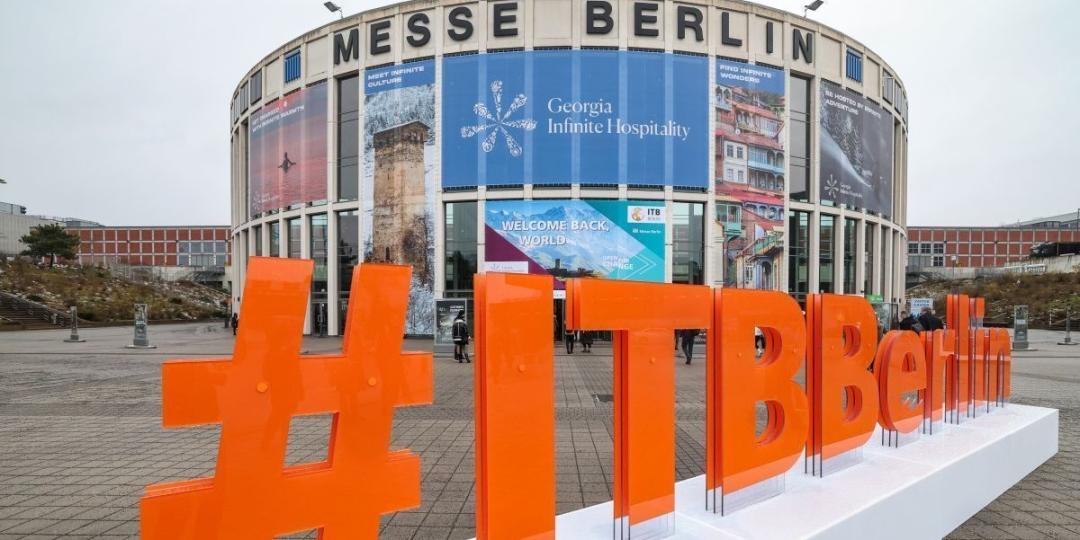The world’s leading travel trade show, ITB Berlin, this year recorded nearly 100 000 attendees, and more than 5 500 exhibitors from 170 countries occupying all 27 exhibition halls at the Berlin Exhibition Grounds earlier this month.
“ITB Berlin once again mirrored industry developments. The mood among exhibitors, visitors and speakers was very positive throughout. They generally agreed that people’s desire to travel is not just satisfying pent-up demand after the pandemic, but that it will remain basically stable. Neither inflation nor high energy prices appear to be curbing demand,” commented Dr Mario Tobias, CEO of Messe Berlin.
The ITB Berlin Convention also took place in parallel with the three-day show and featured high-profile attendees and 400 leading international speakers at 200 sessions and 17 theme tracks discussing trends and innovations.
All in all, around 24 000 attendees came to the panels, discussions, keynote speeches and lectures.
Tourism community remains on course for success
The ITB Buyers Circle with its 1 300 senior buyers, served as an industry barometer and underlined the importance of the trade show as a leading business platform.
Together with the management consultancy Dr. Fried & Partner, ITB Berlin compiled the new Global Travel Buyer Index. The survey asked several hundred Buyers Circle members about the economic mood and their business goals.
The findings reflected a positive mood throughout regarding the market situation and provided an optimistic outlook for business over the next six months.
The Team South Africa delegation at ITB Berlin – led by South African Tourism CEO, Nombulelo Guliwe and joined by 63 exhibitors including 14 SMMEs – has also returned to SA optimistic, having largely achieved their goals of good meetings with buyers and new business prospects.
AI at the forefront
Artificial Intelligence and its potential uses were a much-discussed topic. For the first time, the ITB Berlin Convention hosted a dedicated AI Track, which was very well received by the event’s attendees. It was generally agreed that no organisation or company could any longer ignore AI.
Glenn Fogel, CEO of Booking Holdings, was certain that “generative AI can be of more assistance than real humans when customers are making their travel plans”.
Charuta Fadnis, SVP, Phocuswright, also acknowledged the growing importance of AI and personalised travel apps. Generative AI is already improving sales, while in Fadnis’s view, using virtual agents and combining AI with blockchain technologies will be key to preventing misuse in the future.
AI was also a big topic for the ITB Innovation Radar, which this year celebrated its second edition. The focus was on 16 forward-looking innovations presented by industry visionaries. They ranged from B2B services for the hospitality industry and travel industry professionals to sustainable concepts. The innovations offered a glimpse of future trends.
The convention participants also agreed that it was impossible to ignore climate justice (putting equity and human rights at the core of decision-making and action on climate change) and the skills shortage, for which there were promising solutions.
Jeremy Sampson, CEO of the Travel Foundation, also appealed to the tourism industry to aim for nett zero by 2030. His study, ’Envisioning Tourism in 2030 and Beyond’ outlines a dynamic path with a focus on regulating air travel and 40 measures in six categories for achieving sustainable tourism by 2050.
A look ahead
Albania has been announced as the host country of ITB Berlin 2025. The management of Messe Berlin and representatives of Albania officially sealed their partnership with the signing of an agreement on day two of ITB Berlin.
The next ITB Berlin will take place as a B2B event again from Tuesday to Thursday, March 4-6, 2025 on the Berlin Exhibition Grounds.
























